I'm trying to use JInput for my project, and the library needs some binaries for my application to run.
I've discovered that, the required binaries are inside the library. But still, I get an UnsatisfiedLinkError when doing a gradle run because it cannot find the library binaries.
So I guess I need to unpack the library .jar before running the project? How do I use a library that has native binaries in it?
Here's my build.gradle
plugins {
id "java"
id "application"
}
repositories {
mavenCentral()
}
dependencies {
// https://mvnrepository.com/artifact/net.java.jinput/jinput
compile group: 'net.java.jinput', name: 'jinput', version: '2.0.7'
}
EDIT: Here you can see the contents of the library
